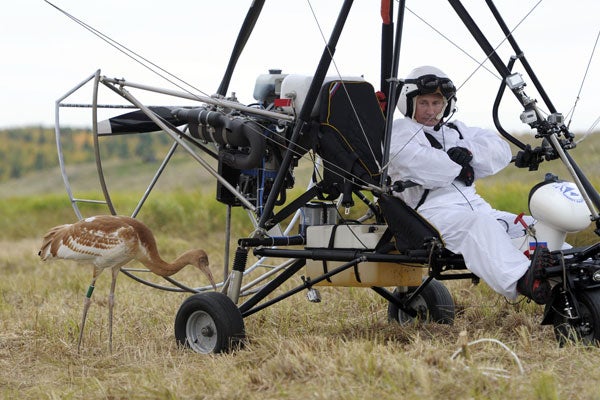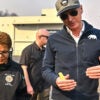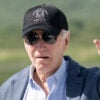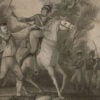 Vladimir Putin donned a white cloak, helmet and a crane’s beak and climbed into an ultra-light plane to lead a flock of endangered red cranes in the Arctic Yamal peninsula in their maiden flight south. The cranes, raised in captivity, were supposed to get imprinted by Putin as their flock leader and follow him in their migratory travel to Iran.
Vladimir Putin donned a white cloak, helmet and a crane’s beak and climbed into an ultra-light plane to lead a flock of endangered red cranes in the Arctic Yamal peninsula in their maiden flight south. The cranes, raised in captivity, were supposed to get imprinted by Putin as their flock leader and follow him in their migratory travel to Iran.
After yet another Putin stunt, the Russian blogosphere exploded with criticism and sarcasm. Critics remembered that Putin’s scuba diving for Greek amphorae, allegedly from the sixth century B.C., turned out to be a staged hoax, according to the Kremlin’s press secretary. Social media recalled photo ops with a Siberian tiger, which was allegedly imported from a zoo for a staged event and eventually died. A snow leopard survived the encounter, as did the dolphins with whom the president swam, and the moose the president personally fed.
Arts and sports are also among Putin’s pastimes: at the age of 59, he took up ice hockey and even scored a goal playing against Russian professionals; he also played piano and sang Blueberry Hills at a charity event. Russian critics wonder how much free time this man has, as every such event requires training and practice.
Naysayers laughed at the Russian president’s flying the fire-extinguishing plane (in a co-pilot seat) during gigantic fires around Moscow, and his diving in submarines to the ocean depths. And who could forget Putin’s naked torso while casting a fishing rod in a Siberian river or riding on a horse donning a cowboy hat?
Yet, all these questions address what appear to be some inconvenient truths: After 12 years in power, is Putin so bored that he is seeking thrills with photogenic animals and in extreme sports (he piloted the ultra-light himself)? Is he trying to live out some adolescent dreams of being a superhero on taxpayers’ dime? Is this his way to deal with aging and mortality?
Another set of questions deal with Putin’s relationship with his entourage, including senior media advisers and the state-run propaganda machine. Any PR flack worth his or her salt would tell the boss that he looks ridiculous in a white suit and a beak. A leader of a nuclear power in a Daffy Duck get-up is no vote getter, nor does he command the respect of international peers.
Either the image advisers are too scared to tell the truth to power, or “the power” simply does not give a hoot. With his popularity at historic lows (48 percent), Putin presided over parliamentary election fraud last December, which provoked the largest public protests in Russia since the end of the Soviet Union.
He then won presidential elections in March, while some Russian regions voted 104 percent in his favor—only because some opposition leaders were not allowed to run, while others had no access to prime time national TV, still the main political media in Russia. Does Putin believe that brute force and fraud are the only tools to remain in power?
The story about the “alpha-crane,” as some Russian wags called him, also has a darker side. Masha Gessen, a prominent Russian journalist raised in New York City, was fired as the editor of Around the World magazine because she refused to cover Putin’s stunt with the cranes. Turns out Around the World is published by the Russian Geographic Society, of which Putin is chairman. Gessen also penned a book on the president, Man Without Face, which is highly critical of its subject.
With media censorship and nongovernmental organizations with international funding under pressure to register as “foreign agents”—with all Stalinist connotations of such terms—repression is on the rise. With opposition leaders and punk singers going to jail; Mikhail Khodorkovsky, the former oil magnate, rotting in the Gulag for 10 years; and the Russian Orthodox Church (Moscow Patriarchy) assuming the monopoly on ideology and morals, Putin’s Russia is not just about cute critters.
Rampant corruption, intolerance of opposition and dissent, servile courts, and courtiers who are afraid to tell the truth to the czar; this is a prescription for political discontent, turmoil—or worse.
The surreal image of the leader of the second-largest nuclear power flying with cranes and piloting an ultra-light over the Arctic wilderness should make one wonder: How secure is President Obama’s Russian “reset” policy—and how will it end?
Ariel Cohen, Ph.D., is Senior Research Fellow in Russian and Eurasian Studies and International Energy Policy at The Heritage Foundation.




























